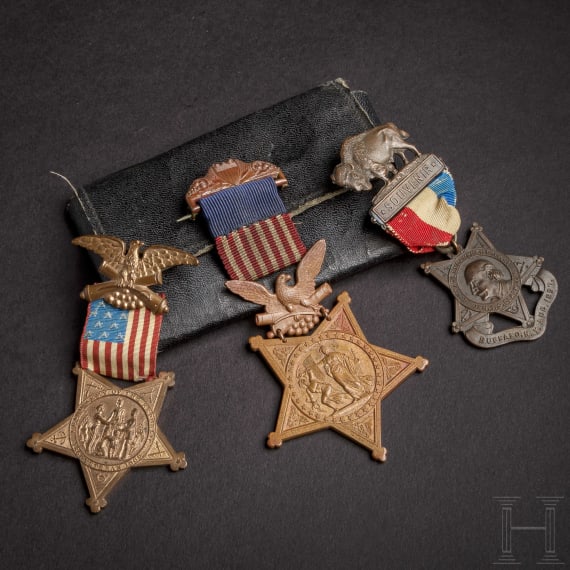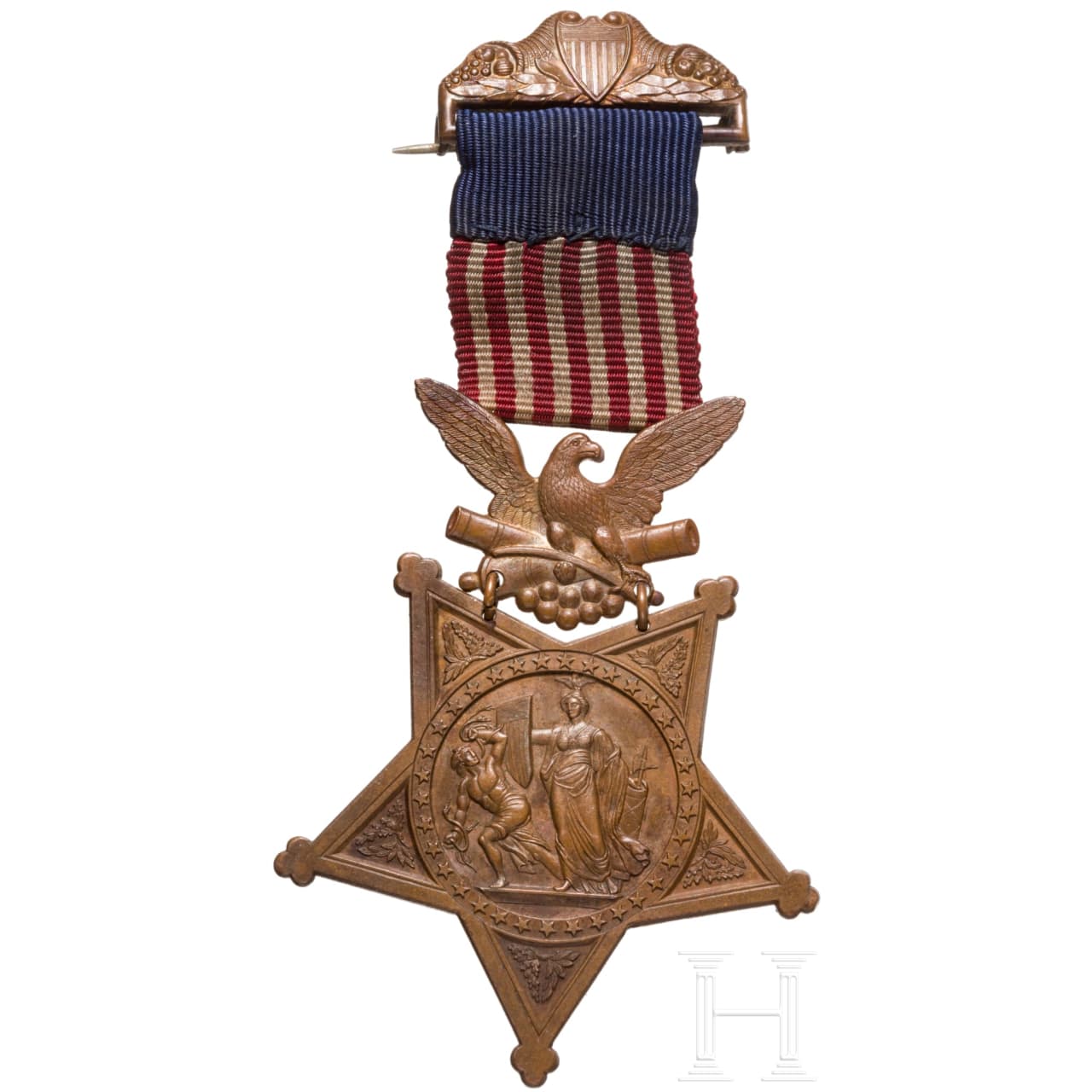Abraham Lincoln ALS to Hannibal Hamlin, Springfield, Ill., Sept. 4, 1860. 2pp. To say that Abraham Lincoln and Hannibal Hamlin were not close is a bit of an understatement, but this extraordinary letter from the future president to his future vice president, suggests that they tried, at least, to get on the same page during the run for office. With the promise of a close election, Lincoln was counting on Hamlin, a veteran politician, to deliver the east, and particularly his home state, Maine. Two months before election day, Lincoln heard scuttlebutt from political allies that Hamlin was spreading gloomy news about the east. In a fit of pique, he took to the pen: I am annoyed some by a letter from a friend in Chicago, in which the following passage occurs: "Hamlin has written Colfax that two members of Congress will, he fears, be lost in Maine -- the 1st & 6th Dist.; and that Washburn’s maj. for Gov. will not exceed 6000." -- I have heard something like this six weeks ago, but had been assured since that it was not so -- Your Secretary of State -- Mr. Smith, I think -- whom you introduced to me by letter gave this assurance; more recently, Mr. Fessenden, our candidate for Congress in one of those Districts, wrote a relative here that his election was sure by at least 500 -- and that Washburn’s maj. only would be from 14000 to 17000; and still later, Mr. Fogg of N.H. now at N. York, serving on a national committee, wrote me that we were having a desperate fight in Maine, which would end in a splendid victory for us. -- Such a result as you seem to have predicted in Maine, in your letter to Colfax, would, I hear, put us on the down-hill tack, lose in the state elections in Penn. & Indiana, and probably ruin us on the main turn in November. You must not allow it. So much smoke and mirrors. Hamlin replied to his running-mate on Sept. 8 claiming that he had not written to Schuyler Colfax -- an influential Indiana politician and future Vice President in his own right -- or to anyone else about the matter, but did fear that two seats might be lost because the margin in the previous election had been so close. Hamlin's relations with his fellow Mainer, William Pitt Fessenden, were complicated: as a young lawyer, he clerked for Fessenden's father, but their relationship grew so testy that when Fessenden stepped down as Sec. of the Treasury in 1865, he took up a seat in the Senate to prevent Hamlin from taking the office. The letter is published in Basler (IV: 110), who quoted it from Nicolay and Hay. The following lots (110-130) have descended directly in the family of Hannibal Hamlin (1809-1891). Hannibal Hamlin, a Maine native, spent the majority of his life serving the public, though he is best remembered today as Abraham Lincoln's first Vice President. A surveyor and teacher before he was admitted to the Maine bar in 1833, Hamlin, a Democrat, was elected to Maine's House of Representatives in 1836 and served as speaker in 1837, 1839 and 1840. He served two terms in the United States House of Representatives, from 1843–1847, and was elected to fill a U.S. Senate vacancy in 1848, and to a full senatorial term in 1851. An anti-slavery proponent, Hamlin did not approve of the strong pro-slavery wing of the Democratic Party. The passage of the Kansas-Nebraska Act determined that the two states (Kansas and Nebraska) could enter the Union with or without slavery, and the legislation opened the territory to organized migrations of pro- and anti-slavery groups. Southerners entered the territory with their slaves while active members of the Anti-Slavery Society also arrived. Hamlin, disgusted with the majority of his party's views on slavery, then switched to the Republican Party. He left the Senate to run for Governor of Maine, and was elected, only to serve one month (January 1856 to February 1856). With little interest in a governorship, Hamlin had made a deal with the newly formed Republican Party: he would run for governor if he could t
Abraham Lincoln ALS to Hannibal Hamlin, Springfield, Ill., Sept. 4, 1860. 2pp. To say that Abraham Lincoln and Hannibal Hamlin were not close is a bit of an understatement, but this extraordinary letter from the future president to his future vice president, suggests that they tried, at least, to get on the same page during the run for office. With the promise of a close election, Lincoln was counting on Hamlin, a veteran politician, to deliver the east, and particularly his home state, Maine. Two months before election day, Lincoln heard scuttlebutt from political allies that Hamlin was spreading gloomy news about the east. In a fit of pique, he took to the pen: I am annoyed some by a letter from a friend in Chicago, in which the following passage occurs: "Hamlin has written Colfax that two members of Congress will, he fears, be lost in Maine -- the 1st & 6th Dist.; and that Washburn’s maj. for Gov. will not exceed 6000." -- I have heard something like this six weeks ago, but had been assured since that it was not so -- Your Secretary of State -- Mr. Smith, I think -- whom you introduced to me by letter gave this assurance; more recently, Mr. Fessenden, our candidate for Congress in one of those Districts, wrote a relative here that his election was sure by at least 500 -- and that Washburn’s maj. only would be from 14000 to 17000; and still later, Mr. Fogg of N.H. now at N. York, serving on a national committee, wrote me that we were having a desperate fight in Maine, which would end in a splendid victory for us. -- Such a result as you seem to have predicted in Maine, in your letter to Colfax, would, I hear, put us on the down-hill tack, lose in the state elections in Penn. & Indiana, and probably ruin us on the main turn in November. You must not allow it. So much smoke and mirrors. Hamlin replied to his running-mate on Sept. 8 claiming that he had not written to Schuyler Colfax -- an influential Indiana politician and future Vice President in his own right -- or to anyone else about the matter, but did fear that two seats might be lost because the margin in the previous election had been so close. Hamlin's relations with his fellow Mainer, William Pitt Fessenden, were complicated: as a young lawyer, he clerked for Fessenden's father, but their relationship grew so testy that when Fessenden stepped down as Sec. of the Treasury in 1865, he took up a seat in the Senate to prevent Hamlin from taking the office. The letter is published in Basler (IV: 110), who quoted it from Nicolay and Hay. The following lots (110-130) have descended directly in the family of Hannibal Hamlin (1809-1891). Hannibal Hamlin, a Maine native, spent the majority of his life serving the public, though he is best remembered today as Abraham Lincoln's first Vice President. A surveyor and teacher before he was admitted to the Maine bar in 1833, Hamlin, a Democrat, was elected to Maine's House of Representatives in 1836 and served as speaker in 1837, 1839 and 1840. He served two terms in the United States House of Representatives, from 1843–1847, and was elected to fill a U.S. Senate vacancy in 1848, and to a full senatorial term in 1851. An anti-slavery proponent, Hamlin did not approve of the strong pro-slavery wing of the Democratic Party. The passage of the Kansas-Nebraska Act determined that the two states (Kansas and Nebraska) could enter the Union with or without slavery, and the legislation opened the territory to organized migrations of pro- and anti-slavery groups. Southerners entered the territory with their slaves while active members of the Anti-Slavery Society also arrived. Hamlin, disgusted with the majority of his party's views on slavery, then switched to the Republican Party. He left the Senate to run for Governor of Maine, and was elected, only to serve one month (January 1856 to February 1856). With little interest in a governorship, Hamlin had made a deal with the newly formed Republican Party: he would run for governor if he could t















Testen Sie LotSearch und seine Premium-Features 7 Tage - ohne Kosten!
Lassen Sie sich automatisch über neue Objekte in kommenden Auktionen benachrichtigen.
Suchauftrag anlegen